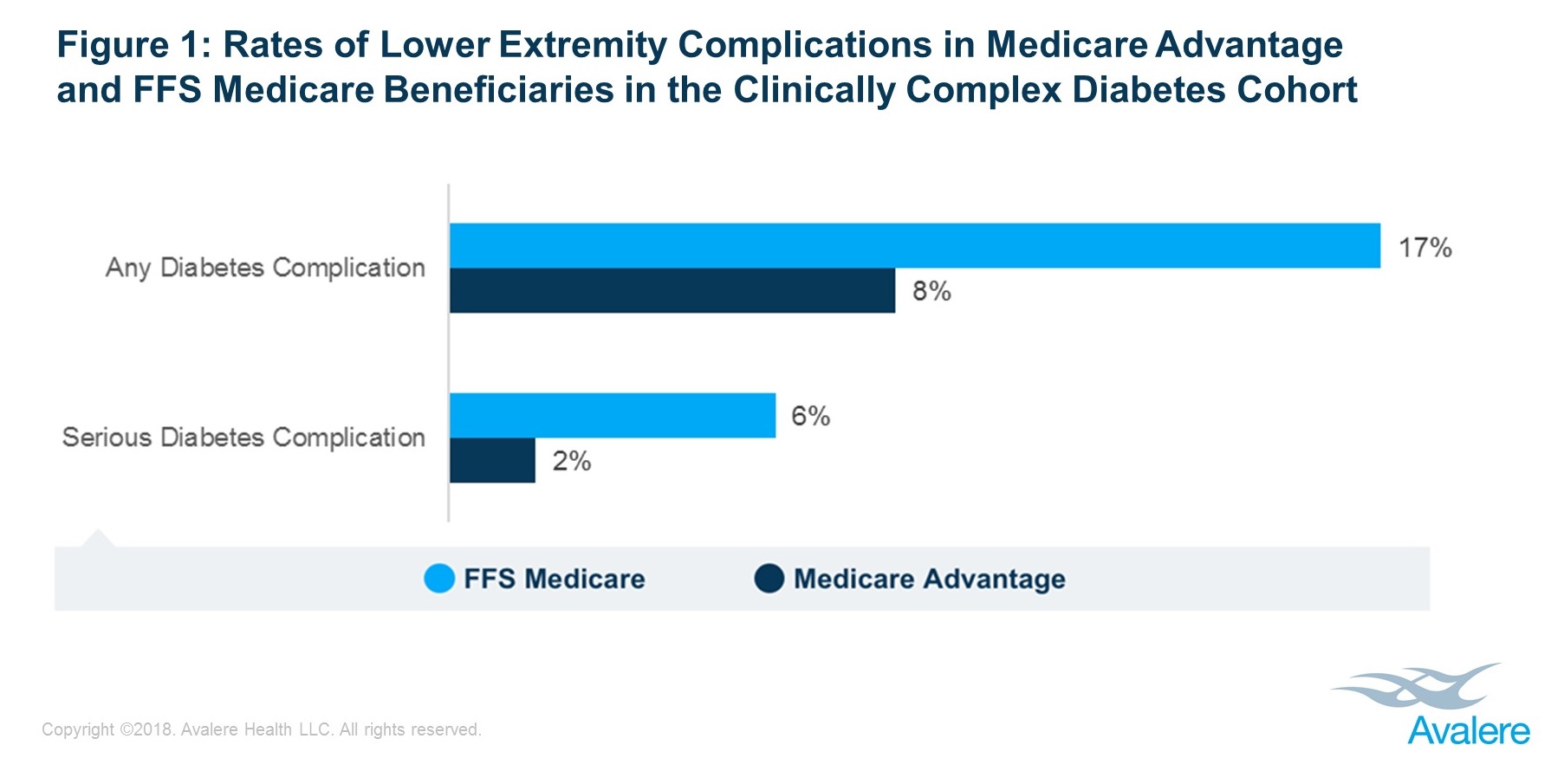Medicare Advantage Achieves Better Health Outcomes and Lower Utilization of High-Cost Services Compared to Fee-for-Service Medicare
Summary
New research from Avalere finds that Medicare Advantage (MA) beneficiaries with hypertension, hyperlipidemia, and diabetes experienced significantly fewer inpatient stays and emergency room visits relative to those in traditional fee-for-service (FFS) Medicare.MA beneficiaries also outperformed FFS Medicare on several key quality measures including higher rates of preventive screenings and tests. Among clinically complex and dual-eligible/low-income subsidy beneficiaries, health outcomes and cost savings were significantly better for beneficiaries in MA than those in FFS Medicare.
“Medicare Advantage beneficiaries with chronic conditions experienced a better quality of care than similar FFS Medicare beneficiaries,” said Dan Mendelson, founder of Avalere. “Our findings present new evidence for Medicare Advantage’s value proposition, especially for high-need beneficiaries.”
Medicare beneficiaries have the option to receive their Medicare benefits through private health plans (known as Medicare Advantage plans) or through the federally-administered FFS Medicare program. Today, Medicare Advantage covers more than one-third of all Medicare beneficiaries.
MA beneficiaries in Avalere’s study had 23% fewer inpatient stays and 33% fewer emergency room visits than FFS Medicare beneficiaries. MA beneficiaries received more preventive physician tests and services, while FFS Medicare beneficiaries had more inpatient stays and outpatient/emergency care services.
“Medicare Advantage plans’ focus on preventive care may help avoid downstream utilization of high-cost services driven by acute-care and emergency needs,” said Christie Teigland, Ph.D., vice president at Avalere.
High-Need Beneficiaries
The distributions of disease within the 3 chronic condition cohorts (hypertension, hyperlipidemia, and diabetes) were similar between the MA and FFS Medicare study populations. The diabetes cohort was the most complex, with more than 75% of MA and FFS Medicare diabetes patients having all 3 chronic conditions (referred to as the clinically complex diabetes cohort). In Avalere’s study, MA outperformed FFS Medicare on caring for the clinically complex diabetes cohort. MA beneficiaries in this cohort had significantly lower rates of complications from diabetes, including serious complications (Figure 1).
Among dual-eligible beneficiaries who receive benefits from both Medicare and Medicaid, Avalere’s analysis found that MA outperformed FFS Medicare on utilization, cost, and quality. Dual-eligible MA beneficiaries saw their primary care providers more frequently and had 33% fewer hospitalizations and 42% fewer emergency room visits than those in FFS Medicare. At the same time, MA dual-eligible beneficiaries had lower healthcare costs relative to those in FFS. The total cost of care for FFS dual-eligible beneficiaries was 20% higher than those in MA, due to higher inpatient and outpatient utilization in FFS (Figure 2).
“Medicare Advantage incentivizes plans to provide more coordinated care and preventive services, enabling high-need beneficiaries to avoid costly complications and hospitalizations,” said Sean Creighton, vice president at Avalere.
Methodology
Avalere compared descriptive demographic, clinical, utilization, quality and cost metrics of MA and FFS beneficiaries with one or more of 3 chronic conditions selected from the top 5 conditions based on prevalence in the Medicare population: hypertension, hyperlipidemia, and diabetes.
A descriptive cross-sectional cohort design was used to analyze a sample of 1,581,822 MA beneficiaries extracted from Inovalon’s proprietary MORE2 Registry® and a sample of 1,212,698 FFS beneficiaries extracted from Medicare Standard Analytical Files enrolled for the full year in 2015. Costs were calculated using published Medicare standard rates to enable direct comparison of spending by expenditure category in MA and FFS Medicare.
A full discussion of the research methodology can be found in the report.
Funding for this research was provided by Better Medicare Alliance. Avalere Health retained full editorial control.
To learn more about Medicare Advantage, connect with us.
Learn More






